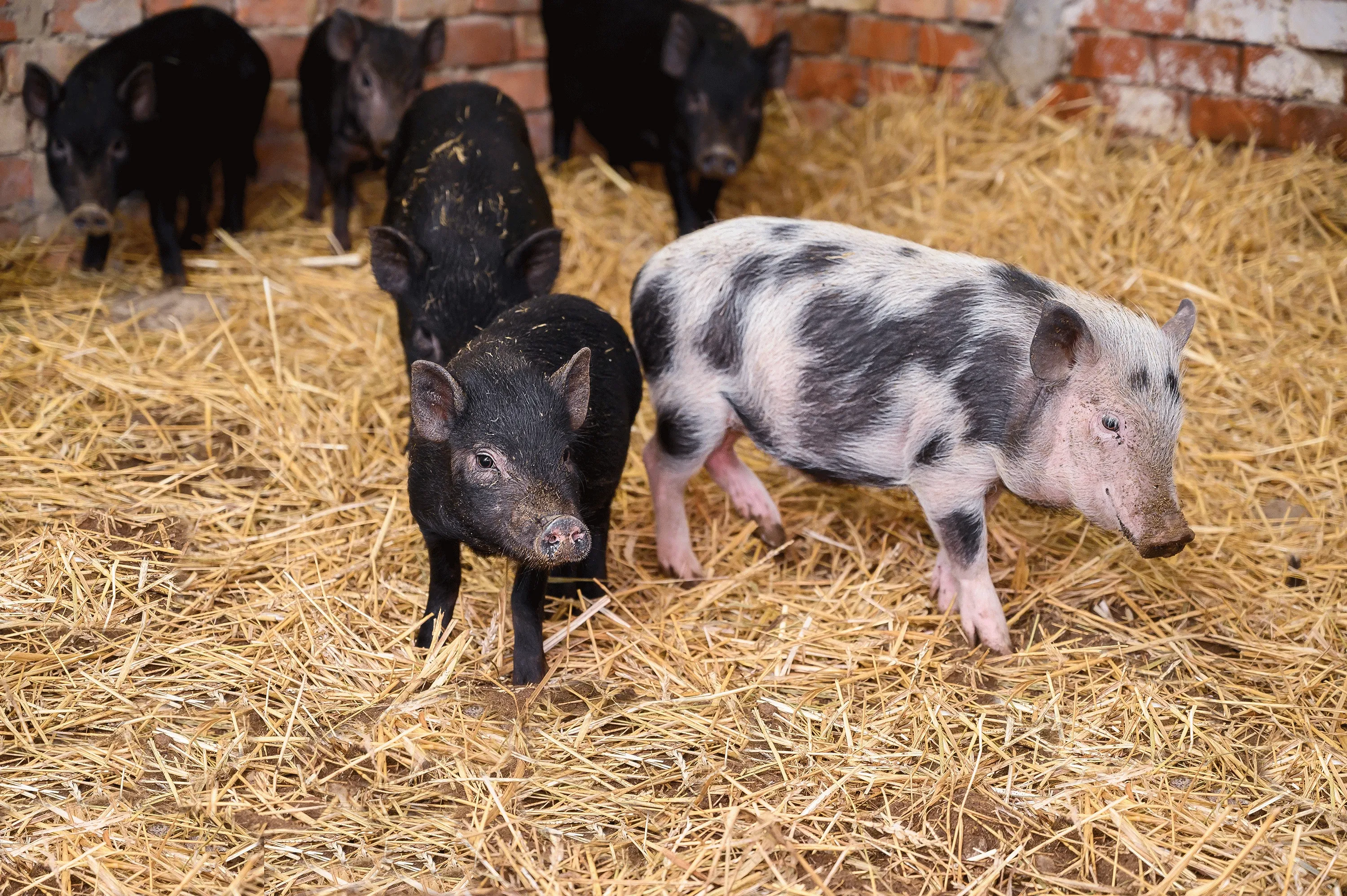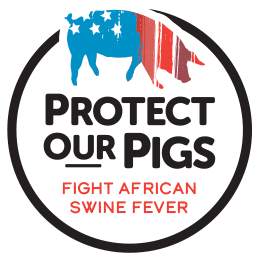The highly contagious and deadly African swine fever spreads rapidly and affects domestic and wild swine. Just one pig with African swine fever can wipe out every pig in the area. Owners of small farms with pigs, homesteads, or companion animals can take basic steps to protect their pigs.
How Transmission Can Occur
Although people cannot get African swine fever, they can carry it on clothing, shoes, and equipment. Sources of the infection include garbage feeding, contaminated personnel, equipment and vehicles, contaminated feed, or water, infected domestic or wild pigs, soft ticks, stable flies and semen. The most common sources of transmission include:
Direct contact occurs when healthy pigs have contact with infected domestic or wild swine or come in contact with infected saliva, urine, feces, or aerosolized respiratory secretions via coughing or sneezing.
Indirect transmission happens when healthy pigs eat virus-contaminated feed, pork products, or come into contact with the virus on clothing, shoes, equipment, vehicles, or food waste.
6 Key Prevention Steps
The wolf is at the door. Global movement of people and pigs increases the health risks to U.S. swine. Taking these immediate steps protects your pigs and the nation’s herd from this deadly disease.
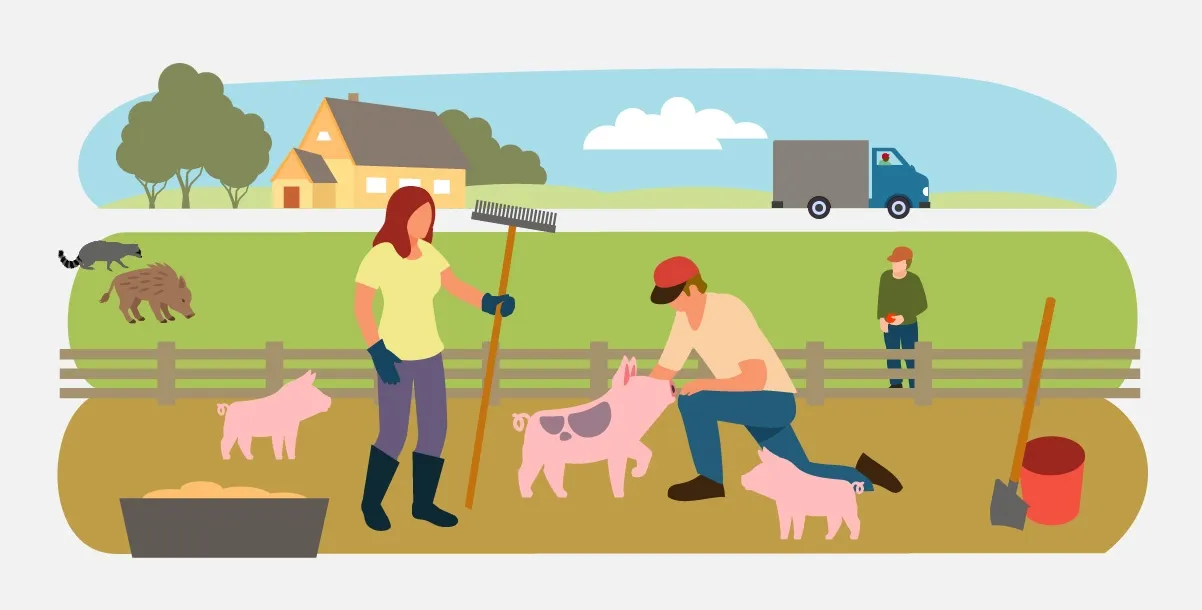
Step 1 Step 2 Step 3 Step 4 Step 5 Step 6
Download Prevention Steps
English (307.04 KB) | Español (204.86 KB)
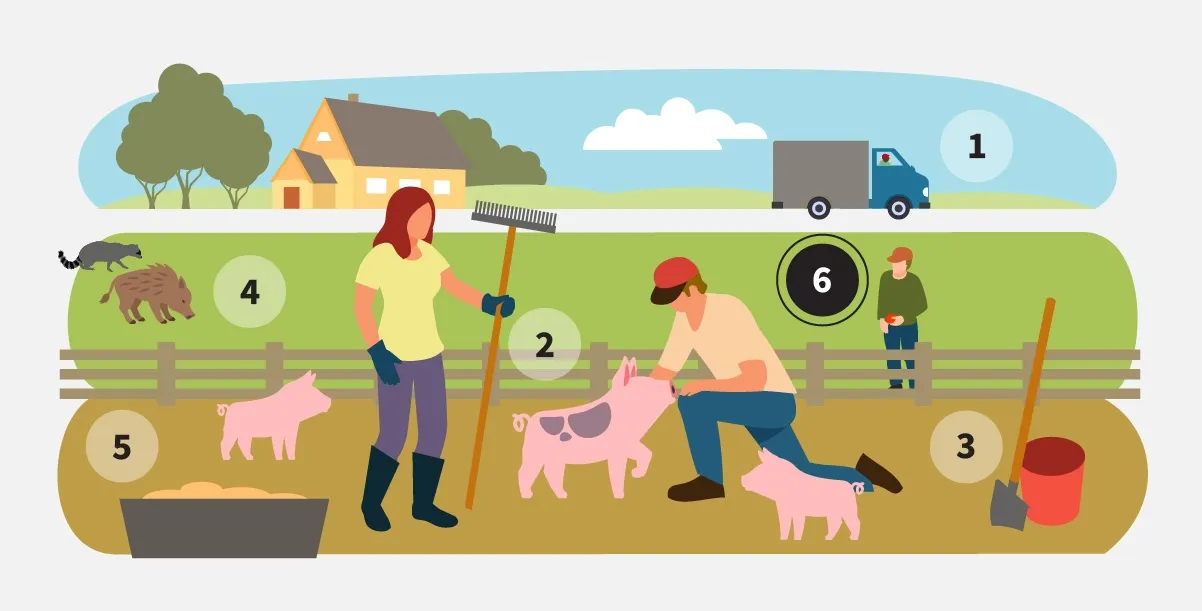
Step 6: Prohibit anyone eating in animal areas.
The African swine fever virus survives for extended periods in pork and pork meat products and can be a source of spread. Keep all outside food products to a specific area of the facility away from animals.
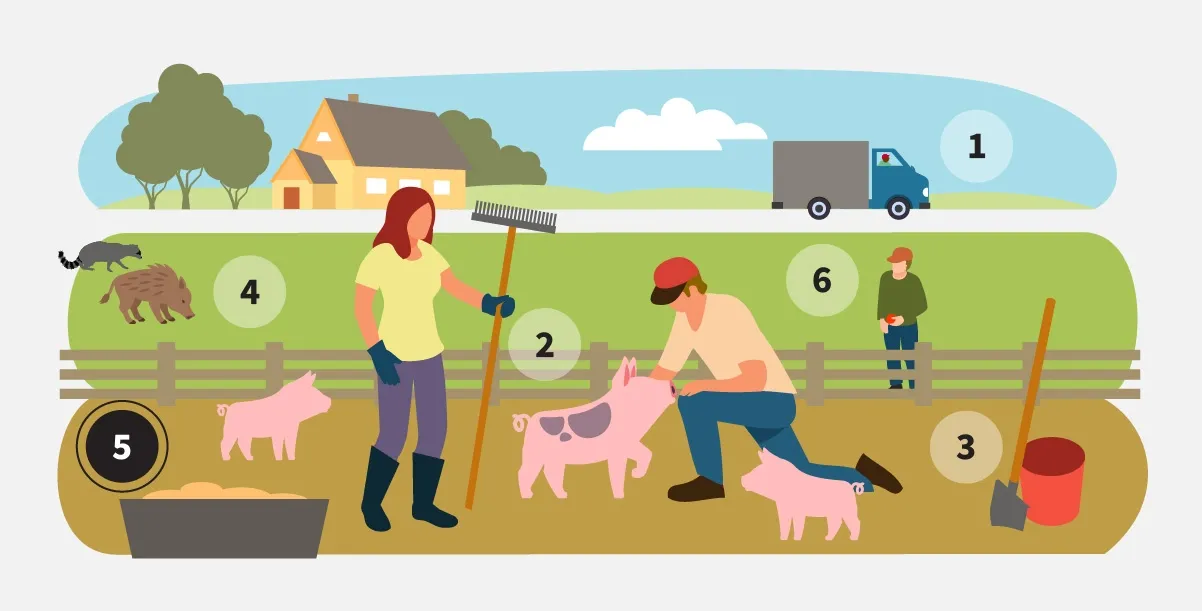
Step 5: Store feed where wildlife cannot access it or contaminate it.
Make sure your pigs don’t eat from the trash and do not garbage-feed them as that is a source of spread for African swine fever.
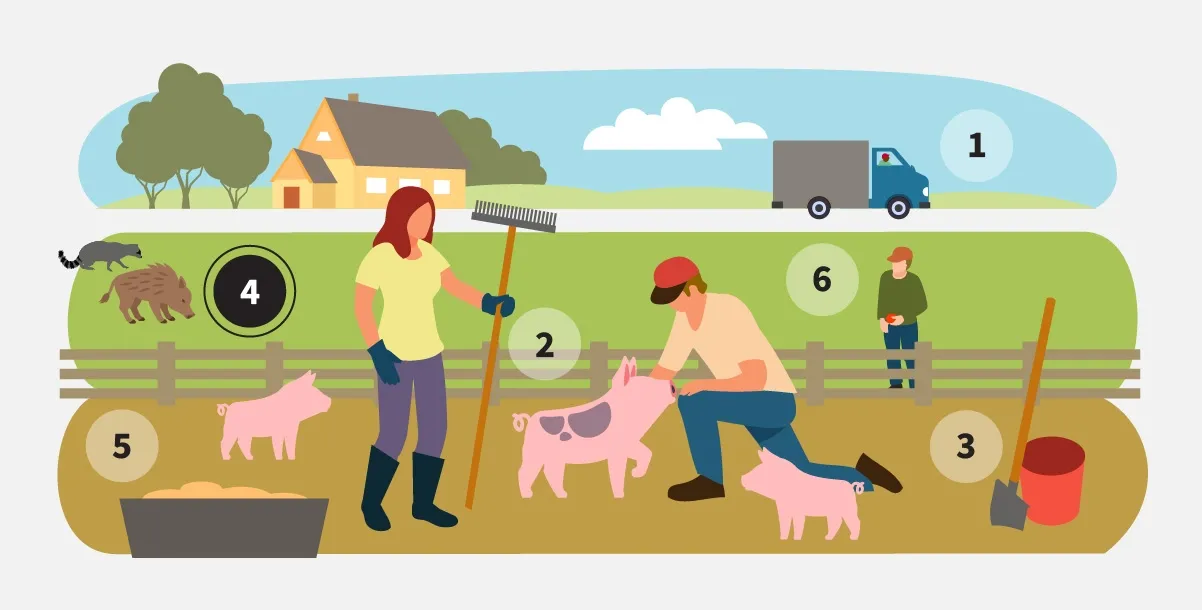
Step 4: Prevent contact between your pigs and wild pigs.
Feral swine are a big risk of carrying African swine fever and other diseases. Secure your pigs’ pen from such contact. If wild hogs mix with backyard or pet pigs, it could be deadly.
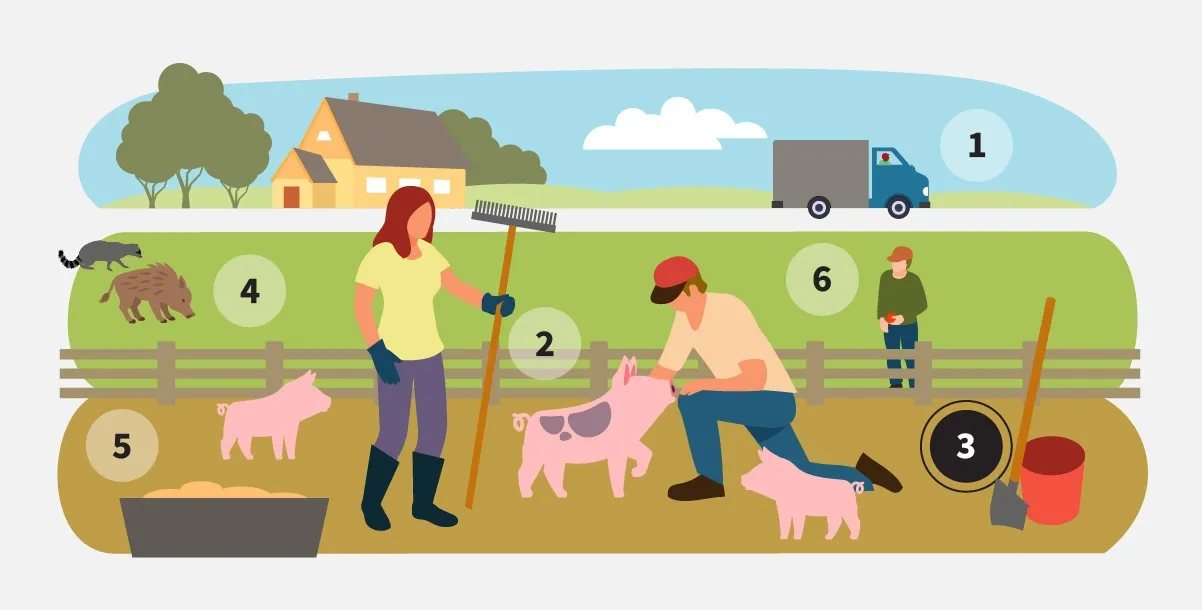
Step 3: Clean and disinfect all equipment and vehicles entering or leaving your site.
The virus can stay on vehicles and equipment. Check with your veterinarian about specific cleaning and disinfection suggestions.
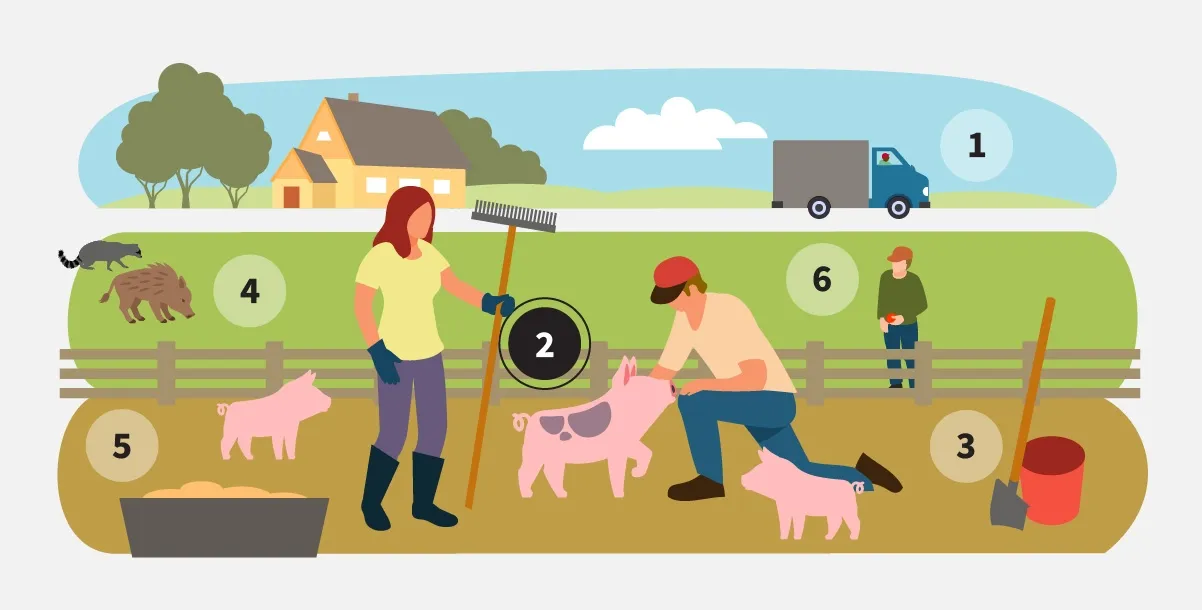
Step 2: Require visitors to wash hands, wear clean clothes and shoes on your property.
As the virus can stay on clothing and other materials, this step limits disease spread for anyone coming onto your farm. Don’t let anyone who has been in an African swine fever-affected country onto your property for at least five days after returning to the United States.
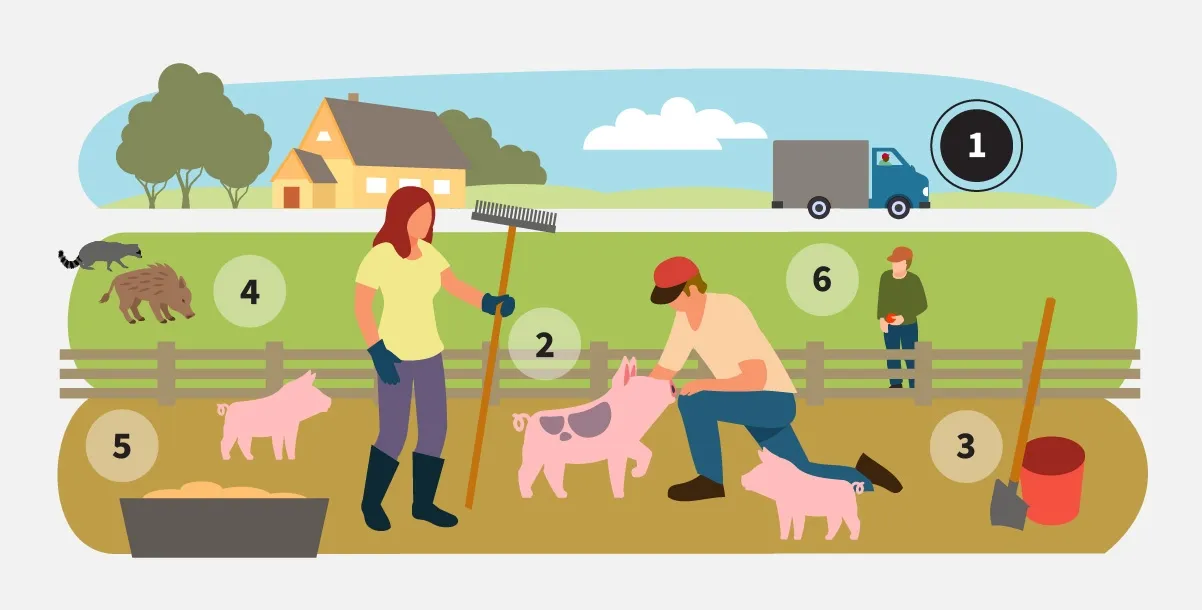
Step 1: Limit on-farm traffic.
This includes neighbors and visitors. Understand who is coming onto your property, including people, vehicles, and equipment.
Know the Signs
To protect our pigs from African swine fever, you must be alert to the signs of this deadly virus:
Report Any Signs

Immediately report animals with any signs to State or Federal animal health officials or call USDA for appropriate testing and investigation.
Call USDA at 1-866-536-7593


